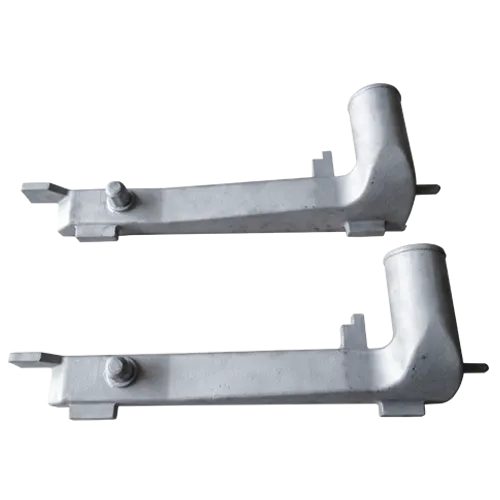Mobile:+86-311-808-126-83
Email:info@ydcastings.com
irrigation pump impeller
Understanding the Importance of Irrigation Pump Impellers
Irrigation is a vital process that sustains agriculture by efficiently distributing water to crops. Among the many components involved in irrigation systems, the pump impeller plays a crucial role in ensuring effective water movement. This article explores the significance of irrigation pump impellers, their types, and their functionality.
An impeller is a rotating component within a pump that transfers energy from the motor to the water, enabling it to flow. In irrigation systems, impellers are essential for transporting water from sources such as wells, rivers, or reservoirs to the fields. The design and material of impellers can significantly influence their performance, efficiency, and longevity.
There are several types of impellers used in irrigation pumps, including radial, mixed flow, and axial. Radial impellers, which push water outwards, are ideal for high-pressure applications and are commonly found in high-head pumps. Mixed flow impellers offer a balance between pressure and flow, making them versatile for various irrigation needs. Axial impellers, on the other hand, are designed for high flow rates and are typically used in low-pressure situations. Each type of impeller serves a specific purpose, and selecting the right one is crucial for optimal irrigation performance.
irrigation pump impeller

Material choice is another critical factor in the manufacturing of impellers. Common materials include stainless steel, bronze, and engineered plastics. Stainless steel impellers provide durability and resistance to corrosion, making them suitable for long-term use in harsh environments. Bronze impellers, while more expensive, offer excellent strength and resistance to wear. Engineered plastics, though lighter and often more cost-effective, may be less durable in comparison.
The efficiency of an irrigation pump is heavily influenced by its impeller design. A well-designed impeller minimizes energy loss and maximizes flow, leading to reduced operational costs and improved irrigation performance. Regular maintenance, including cleaning and inspection of the impeller, is essential to ensure that it functions correctly. Blockages or wear can hinder water flow and increase energy consumption.
In conclusion, the impeller of an irrigation pump is a fundamental component that significantly impacts the efficiency and effectiveness of water distribution in agriculture. Understanding the various types and materials of impellers can help farmers and irrigation professionals make informed decisions, ultimately leading to more sustainable farming practices. With advancements in technology and design, the future of irrigation pump impellers holds the promise of even greater efficiency and performance, ensuring that our agricultural systems continue to thrive.
-
Why Should You Invest in Superior Pump Castings for Your Equipment?NewsJun.09,2025
-
Unlock Performance Potential with Stainless Impellers and Aluminum End CapsNewsJun.09,2025
-
Revolutionize Your Machinery with Superior Cast Iron and Aluminum ComponentsNewsJun.09,2025
-
Revolutionize Fluid Dynamics with Premium Pump ComponentsNewsJun.09,2025
-
Optimizing Industrial Systems with Essential Valve ComponentsNewsJun.09,2025
-
Elevate Grid Efficiency with High-Precision Power CastingsNewsJun.09,2025











